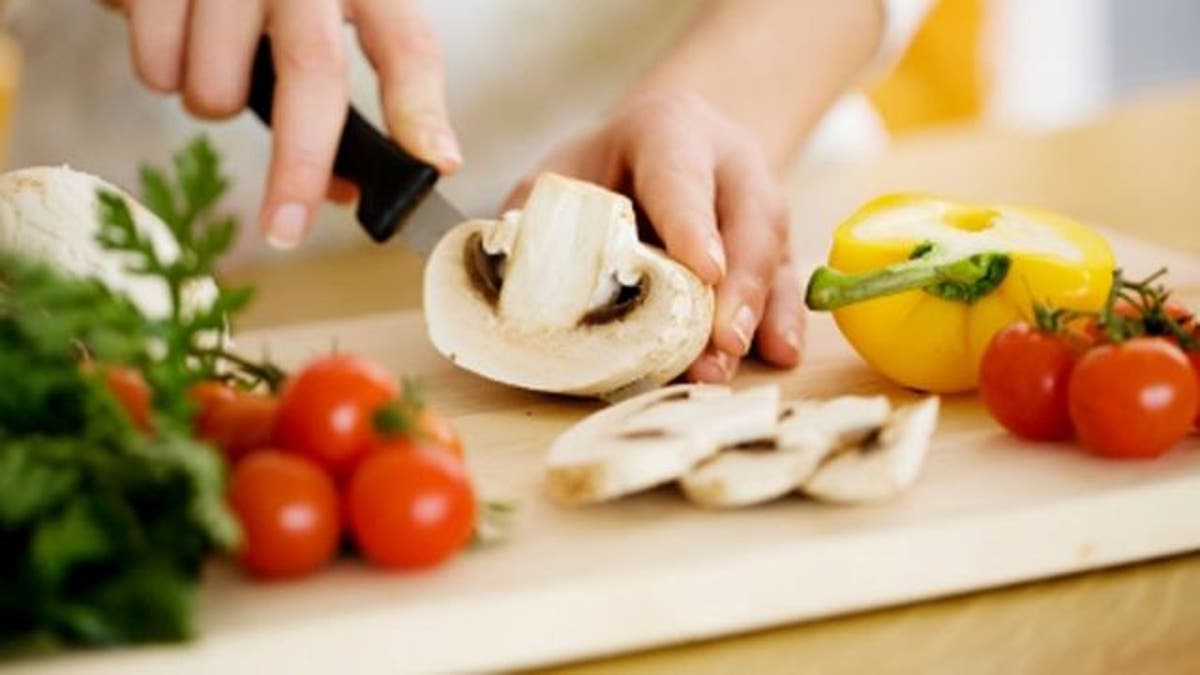
You may have heard that Jay Z is going vegan for most of December. If you’re interested in trying it yourself, perhaps as a pre-holiday cleanse, there are plenty of benefits. But reaping the rewards comes from doing vegan right. If you’re a newbie, here are some key tips, as well as common pitfalls to avoid.
DO eat whole plant-based foods
The benefits of going vegan come from not only eliminating animal-based ingredients, but also from consuming a wide variety of unprocessed nutrient-rich plant-based foods, including veggies, fruits, whole grains like quinoa, beans, lentils, nuts, seeds, herbs, spices, and healthy plant fats, such as avocado and coconut. In other words, a white bagel spread with margarine may be vegan, but it’s not nutritious or good for you. Make quality plant-based foods your focus.
Health.com: 20 Snacks that Burn Fat
DON’T load up on vegan junk food
There are so many vegan products on the market these days, it’s easy to be a ‘junk food vegan.’ Years ago vegans had to make most of their meals from scratch. Today, there’s an endless supply of highly processed vegan foods, from faux pepperoni pizza and fake bacon to vegan cookies, candy, and donuts. I’ve met many vegans who never touch fruits and veggies, and others who live off of potato chips and licorice. Vegan treats like ice cream made from coconut milk (yum!) are fine in moderation, but to look and feel your best, the bulk of your meals and snacks should be comprised of nutrient-packed whole foods.
Health.com: Best Superfoods for Weight Loss
DO drink plenty of water
Most Americans only eat about half of the recommended daily intake for fiber, probably because 75 percent fall short of the minimum recommended five daily produce servings, and fewer than 10 percent eat the recommended minimum three daily whole grain servings. Healthfully going vegan means you’ll be upping your intake of both, in addition to other fiber-rich foods, like beans and nuts.
In fact, this dietary switch could easily result in doubling or tripling your daily fiber intake – and that means you’ll need plenty of H2O. Your body can’t break down the fiber in food, and absorb it from your digestive tract into your bloodstream, so the fiber has to work its way through your system in order to be eliminated. Water helps move it through, so aim for at least 16 ounces, four times a day. If you don’t like it plain, spruce it up by adding citrus slices, mashed fruit like berries, or a few sprigs of fresh mint.
DON’T forget about protein
Protein provides building blocks that maintain and repair your body’s tissues, including muscle, as well as hormones, and enzymes. It also boosts satiety, and revs up metabolism. Without enough protein in your diet, you may feel fatigued, get sick more frequently, and notice a drying or dulling of your skin and hair. Plant-based foods can provide enough, but it’s important to include protein sources in every meal. Quinoa provides 8 grams per cup; almonds 7.5 g per quarter cup whole; lentils 17 g per cup; and a vegan protein powder, like pea protein, which can be whipped into a smoothie, can pack nearly 25 grams per scoop.
Health.com: 14 Best Vegan and Vegetarian Protein Sources
DO veganize your usual meals
If you’re feeling overwhelmed by the idea of going vegan, or you’re wondering “What would I eat?!” think about healthy omnivore meals, then replace the meat and dairy with plant-based options. For example, stuff peppers with lentils instead of ground turkey, add cannellini beans to a soup in place of chicken, and make chili with kidney beans instead of beef. In nearly any dish, from tacos to stir-frys, you can simply swap meat, poultry or seafood with beans or lentils.
To replace dairy, opt for “milks” made from almonds, coconut, or sunflower seeds, and use extra virgin olive or coconut oil instead of butter. In place of creamy dressings like Caesar and ranch, use tahini. And if you feel like you need more options, search for healthy vegan recipes online. I completed a vegan, organic culinary program several years ago, and I was blown away by how just how creative you can get with plant-based foods, and how satisfying they can be.
Health.com: 31-Day Eat-More-Veggies Plan
DON’T forget about ethnic eateries
Some of my clients worry that going vegan will make it difficult to dine out, but in many cultures, vegan dishes are staples, so meeting friends or clients at ethnic restaurants is a great way to socialize (without being limited to just a side salad or a plate of steamed veggies). Some of my favorites include Indian (chana masala), Middle Eastern (hummus and tabouleh), and Thai (green curry).
Cynthia Sass is a registered dietitian with master’s degrees in both nutrition science and public health. Frequently seen on national TV, she’s Health’s contributing nutrition editor, and privately counsels clients in New York, Los Angeles, and long distance. Cynthia is currently the sports nutrition consultant to the New York Rangers NHL team and the Tampa Bay Rays MLB team, and is board certified as a specialist in sports dietetics. Her latest New York Times best seller is S.A.S.S! Yourself Slim: Conquer Cravings, Drop Pounds and Lose Inches.
Jay Z is Going Vegan: 6 Dos and Don’ts for First Timers originally appeared on Health.com.








































